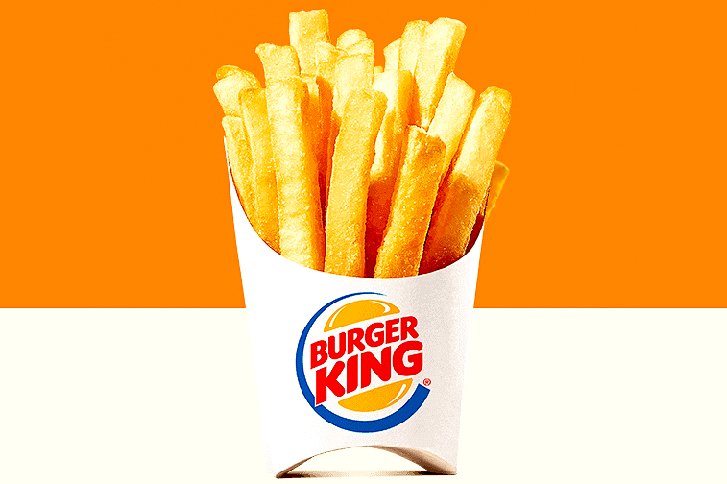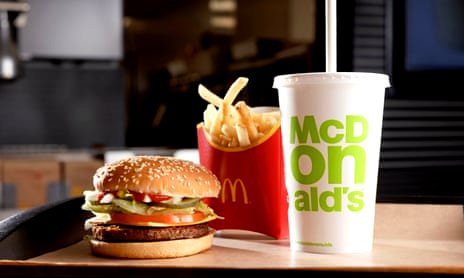As society shifts toward plant-based lifestyles, fast-food corporations like Burger King are trying to adapt. Yet for vegans, one question remains unanswered - are Burger King fries vegan or not? Unfortunately, like the chicken and egg question, the answer lies somewhere in between these extremes - don't despair dear reader as I will explore further into this enigma and unravel its web of ingredients, cross-contamination and natural flavoring that comprises these mysterious fries!
At the outset of our quest for knowledge, it is necessary to acknowledge the often conflicted relationship between veganism and fast-food. Can these two aspects coexist harmoniously or will they always remain rivals vying for supremacy? Eventually we shall explore this further - but first let's delve into Burger King's recipe, dissect all its ingredients, seasonings and ingredients to determine whether they meet the stringent standards required of plant-based lifestyles.
Naturally, the devil lies in the details, so we shall scrutinize every variable that could possibly sway an answer in either direction. From cooking process inspection to cross-contamination concerns and other matters plaguing vegan lifestyles - but do not despair, noble vegan; our journey shall not be wasted: at its conclusion we shall emerge armed with knowledge and resources necessary to make informed choices when purchasing fast-food options - so listen closely as I embark upon this perilous journey for plant-based diets everywhere!
I. Burger King Fries: What's in Them?
Fries have long been considered an ideal fast food option, being quick, delicious, filling and vegan-friendly - and when it comes to vegan fries specifically, Burger King stands out as being an unrivalled provider! Their fries have quickly become the go-to option for all vegan foodies looking for quick meal solutions while on the move.
Before diving in, have you ever considered what makes Burger King fries vegan-friendly? Well, when we take a closer look at their ingredients we see they contain potatoes, vegetable oil, dextrose (a sugar) and salt - initially this might seem harmless and easy to decipher; but as vegans we must keep certain factors in mind.
The Issue with Dextrose
Although dextrose is produced from plants, we should still be wary of its safety as sugar products, including dextrose in the US, are often processed using bone char derived from cattle bones as a means to remove impurities in sugar products.
Potential Risks of GMO and Additives
Another potential risk is GMO potatoes or artificial additives like preservatives, coloring agents and flavor enhancers which could potentially be present - however Burger King hasn't been forthcoming about disclosing whether their fries contain such things.
Cross-Contamination and Veganism
With all this information, one might think Burger King fries' vegan-friendliness was at stake. But we haven't even discussed cross-contamination yet! Do you know whether their status remains vegan if they're cooked in oil containing non-vegan products? Suddenly things got more complex.
Burger King fries may appear to be vegan-friendly, yet it is important to recognize that certain ingredients could pose concerns for some vegans. If your veganism strictly excludes all animal products or by-products, then proceed with caution and get in touch with Burger King so they can provide more information regarding their food philosophy.Learn more at EugenesDiner.com
II. Potential Cross-Contamination: A Vegan Dilemma
Cross-Contamination and Vegan Diets
Cross-contamination for vegans is of critical concern, as even trace amounts of animal products could harm their diets. Fast food companies pose an inherent risk of cross-contamination during the cooking process when animal-based items like meat are fried alongside vegan-friendly items like fries in one oil.
Burger King may claim that they have measures in place to avoid cross-contamination, yet their statement rings hollow as they cannot guarantee that their fries are cooked separately from meat products - this leaves open the possibility of cross-contamination beneath their vegan fries' facade.
Cross-Contamination Risks in Fast Food Restaurants
Cross-contamination also occurs through sharing of equipment or utensils in fast food restaurants; for example, Burger King fries are typically prepared in the same fryer with chicken nuggets or fish fillets, leading to potential cross-contamination by small particles of animal products remaining attached to them despite regular oil changes; there remains the suspicion that certain ingredients could linger unwittingly and harm vegan diets.
Keep in mind that Burger King's claims of vegan-friendly fries should not be taken at face value; cross-contamination risks must always be assessed carefully when making decisions regarding food consumption. You must determine whether consuming items which may have been subject to cross-contamination meets your standards or not.
Reducing Cross-Contamination Risks
Cross-contamination risks can be reduced by following some simple guidelines to limit cross-contamination risks. For instance, it's possible to request that fries are cooked in separate oil, and that the equipment used to prepare the fries doesn't come into contact with meat products - though not every request may be granted; nevertheless, it's worth giving it a try if you're serious about following a strict vegan diet.
An alternative option could be eating exclusively vegan food at restaurants; this would negate cross-contamination issues altogether. But if fast food remains your only viable choice and needs to be consumed on occasion, please follow these suggestions for safer and more ethical consumption experiences.
Learn more at plantbasednews.org.III. Natural Flavoring and Other Concerns
Veganism is a complex concept, stretching beyond simply forgoing animal products. For many individuals, veganism encompasses staying away from artificial additives and preservatives which could wreak havoc with our bodies or have unknown sources. Therefore, it's crucial that we understand their potential impacts on both diet and environment.
Burger King claims their fries feature "natural flavoring", consisting of "natural plant extracts, oils, and essences". Although this claim may sound positive, vegans may still feel wary as some natural flavoring may contain animal products like beaver anal glands derived from animal sources; although unlikely that Burger King utilizes such an ingredient. It's wise to perform due diligence on ingredients to ensure you are not intaking something contrary to your values.
What about concerns related to genetically-modified organisms (GMOs)? While Burger King has not explicitly announced whether their fries contain GMO potatoes, research from various resources indicates that they likely do not come from sources utilizing GMOs.
Palm oil should be an ultimate concern for vegans aware of ecological issues. Palm oil production often leads to deforestation and worker exploitation, making it a contentious ingredient in vegan cuisine. Burger King's fries do not contain palm oil - making them a desirable choice for vegans looking to reduce or avoid this ingredient altogether. Note, though, that not all vegans choose this route - though this remains an ongoing debate amongst their community - nonetheless it's important to know where your food originates and if it matches up with your personal viewpoint or not!
Overall, Burger King fries are vegan-friendly. As vegans, however, we must remain mindful when consuming any product to ensure we make well-informed and ethical decisions when selecting diet and product choices such as Burger King fries. Though Burger King fries can form part of any vegan regiment, each individual must decide for themselves if consuming them is acceptable to them or not.
IV. Veganism and Fast-Food: Can They Co-Exist?
Veganism in our society can be an arduous challenge, particularly with regard to fast food. But some fast-food chains are beginning to acknowledge the rising need for vegan options; one such chain being Burger King who have made significant strides by adding plant-based patties containing vegan burgers across their international locations menu.
Fast food restaurants may not yet have fully embraced vegan dining options, but there are still viable ways of finding satisfying vegan meals in fast-food outlets. One such way would be munching on a side salad while enjoying your Burger King fries; or substituting plant-based patties as another viable vegan choice.
Consider that although vegan options may not be abundant, even small steps in this direction can have significant ramifications for fast food industry and may even lead to additional vegan-friendly dishes becoming available over time.
As noted previously, fast food presents vegans with unique challenges when it comes to cross-contamination issues - so it is imperative that they entrust restaurants where they dine as reliable partners to take measures that guarantee vegan-friendly cuisine.
Social media provides another avenue to support veganism in fast-food industries: by clearly communicating your opinions. Doing this can increase public awareness while simultaneously exerting pressure on restaurants to offer more vegan-friendly choices and adhere to ingredient labeling regulations.
As veganism spreads around the globe, it is encouraging to see fast-food chains such as Burger King recognizing and offering vegan choices as evidence that veganism and fast food coexist, albeit with necessary compromises and efforts made towards compatibility.
Conclusion:
Burger King fries are suitable for vegan consumption without incurring ethical and health issues as long as you recognize potential issues with regard to ingredients and cooking processes that might lead to contamination. With such knowledge in hand, ethical vegan consumption should remain within bounds.
As vegans, we must not forget that advocating veganism in fast-food restaurants is both advantageous for ourselves as individuals as well as an invaluable and effective advocacy tool for the movement.
Always ensure your food choices reflect your values and voice your opinions about veganism freely and unabashedly. With sufficient information, guidance, and conscious and informed decisions about both veganism and fast food can exist harmoniously together.
Conclusion
When it comes to the intersection of veganism and fast food, Burger King may not be your first thought. However, after careful examination, we have determined that their fries can be included on a vegan-friendly menu with some caveats. By considering ingredients and cross-contamination risks, we have found that Burger King does offer vegan-friendly options. So, the next time you're on the go and need a quick snack, don't count out Burger King as a potential option for vegans.




